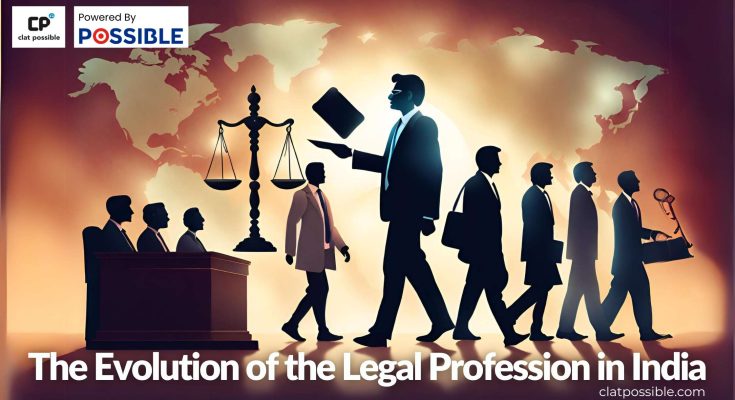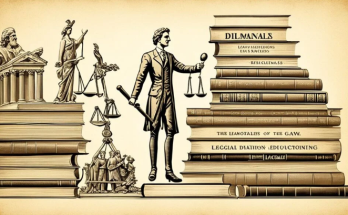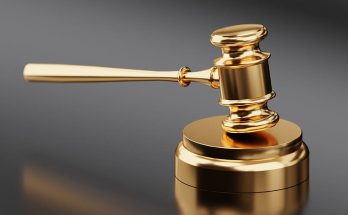The Evolution of the Attorney Profession Over Time, The calling of regulation has changed decisively throughout the long term, reflecting changes in the public eye, culture, and the actual law. From the old frameworks of equity to the cutting edge, particular fields of regulation, lawyers play had a focal impact in molding overall sets of laws and supporting for equity. This article digs into the historical backdrop of the legitimate calling, featuring the critical movements that play characterized the part of lawyers from the beginning of time.
Old Underlying foundations of the Legitimate Profession
The lawyer calling’s beginnings follow back to antiquated civilizations, including Mesopotamia, Egypt, Greece, and Rome. Early legal counselors, however not generally alluded to by the expression “lawyer,” held the obligation of addressing people in debates, drafting legitimate arrangements, and maintaining regulations established by administering powers. The Evolution of the Attorney Profession Over Time.
Old Greece and Rome: The Main Lawyers
There was no such thing as in old Greece, the idea of a legal counselor in the structure we perceive today. In any case, advocates and orators would address parties in questions, frequently for political or individual reasons. The Roman Domain, notwithstanding, denoted the primary clear outline of the legitimate calling, with jurisconsults — specialists who gave lawful counsel and translation — assuming a fundamental part.
In Rome, as the overall set of laws turned out to be more complicated, advocates and procurators arose to help people who required legitimate portrayal. These early professionals laid the foundation for current lawyers, gaining practical experience in pleading cases and interpreting legitimate codes. The impact of Roman legitimate standards, especially the idea of Roman Regulation (Corpus Juris Civilis), reaches out into contemporary common regulation frameworks, featuring the persevering through effect of these early lawyers.
Middle age Europe and the Ascent of Normal Law
The fall of the Roman Domain prompted a time of change in European overall sets of laws, vigorously impacted by local customs, primitive regulations, and strict doctrine. The middle age time frame saw huge changes in the act of regulation, most remarkably with the improvement of the common regulation system in Britain.
The Development of Customary Regulation in England
In Britain, the development of an unmistakable overall set of laws prompted the formalization of lawyers’ jobs. Serjeants-at-law, the main officially perceived legal advisors, held select privileges to provide legal counsel in illustrious courts. By the twelfth hundred years, English custom-based regulation developed, laying out a point of reference based framework in which legal choices molded lawful standards. Barristers and solicitors slowly arose as two unmistakable parts of the lawful calling.
Group law additionally impacted legitimate work on during this period, as chapel courts dealt with issues of marriage, legacy, and other moral or strict debates. The convergence of chapel and state regulations expected lawyers to explore both common and strict guidelines, further refining the job of legitimate experts. The Evolution of the Attorney Profession Over Time.
The Modernization of the Lawful Calling (eighteenth nineteenth Centuries)
The Edification and the ascent of established majority rule governments energized huge changes in lawful practice. New national legitimate codes and an emphasis on individual privileges prompted expanded interest for lawful skill and formalized training in regulation.
The Improvement of Lawful Training and Expert Standards
By the late eighteenth hundred years, colleges started laying out law faculties to give formal training in lawful hypothesis and practice. In the US, the foundation of the Harvard Regulation School in 1817 set another norm for lawful training, accentuating thorough scholastic preparation and the contextual analysis strategy. As regulation became perceived as a free calling, bar associations and licensing requirements arose, guaranteeing lawyers had the important abilities and information to successfully address clients. The Evolution of the Attorney Profession Over Time.
Extension of Lawful Specializations
The nineteenth century saw the rise of specialized areas of law, as social orders turned out to be more intricate. With the modern insurgency came a scope of new legitimate issues, from labor rights to corporate regulation. Lawyers started to have practical experience in unambiguous fields, for example, property regulation, business regulation, criminal regulation, and family law, adjusting to the changing legitimate necessities of a quickly industrializing society.
The Cutting edge Period of Regulation: Globalization and Innovative Progressions (twentieth 21st Centuries)
The twentieth and 21st hundreds of years have seen exceptional changes in the legitimate calling, driven by globalization, mechanical advancement, and changes in cultural values. The present lawyers should explore a quickly developing scene, offsetting customary practices with new legitimate and moral difficulties.
Globalization and Worldwide Law
As organizations and people work on a worldwide scale, the requirement for lawyers with mastery in international law has flooded. Economic accords, ecological guidelines, common freedoms, and protected innovation regulations progressively expect attorneys to be knowledgeable in cross-line legitimate issues. International regulation firms and multinational corporate lawful departments have become ordinary, with lawyers habitually taking care of cases that range numerous purviews.
The Effect of Innovation on Legitimate Practice
Mechanical progressions have changed essentially every part of the lawful calling. From e-discovery programming to artificial intelligence, innovation has smoothed out numerous parts of lawful work, further developing productivity and exactness. Present day lawyers use case the board programming, legitimate examination information bases, and correspondence platforms to oversee cases, draft archives, and speak with clients.
Artificial intelligence and the Future of Lawful Practice
Computerized reasoning (simulated intelligence) is changing lawful examination, report survey, and even predictive legitimate analytics. Devices like machine learning algorithms can rapidly break down immense measures of lawful information, giving experiences that guide on the off chance that methodology and navigation. In any case, the utilization of simulated intelligence in regulation additionally brings up moral issues, including issues of data privacy and the gamble of computerization affecting customary lawyer jobs.
Variety and Consideration in the Legitimate Profession
By and large, the lawful calling was overwhelmed by specific gatherings, with restricted open doors for women, minorities, and people from lower financial backgrounds. Throughout recent many years, there has been a deliberate push to make the field more comprehensive, advancing different points of view that upgrade the quality and openness of legitimate portrayal.
Associations like the American Bar Association and drives inside graduate schools overall have effectively attempted to guarantee more prominent incorporation, making the calling more intelligent of the social orders it serves.
Present day Difficulties and Moral Considerations
The lawyer calling today faces remarkable moral difficulties, including confidentiality, irreconcilable circumstances, and the obligation of client representation. Lawyers should explore complex ethical codes laid out by bar affiliations and maintain elevated requirements of incredible skill.
Offsetting Client Backing with Social Responsibility
Present day lawyers frequently wind up at the convergence of client support and more extensive social responsibility. Natural issues, corporate administration, and basic liberties cases request that lawyers gauge the interests of their clients against possible social effects. This difficult exercise is especially vital in high-stakes cases including strong partnerships or government substances.
The Job of Free Work
Numerous law offices and individual lawyers give pro bono services to underserved networks, guaranteeing that all people approach legitimate portrayal no matter what their monetary means. Free work highlights the moral responsibility inside the calling to advance decency and equity.
The Fate of the Lawyer Profession
As we move into the future, the lawful calling will keep on developing because of technological headways, cultural changes, and worldwide issues. The job of lawyers will without a doubt extend to address new areas of regulation that arise close by headways in science, innovation, and globalization.
Legitimate experts representing things to come should embrace ongoing education, remaining refreshed on new advances, worldwide lawful turns of events, and moral contemplations. From virtual courts to digital contracts fueled by blockchain, the eventual fate of regulation vows to be however powerful as it could be testing.
For those entering the legitimate field, the calling offers a fulfilling and effective profession way, with lawyers assuming a urgent part in maintaining law and order and upholding for equity in an undeniably complicated world.



